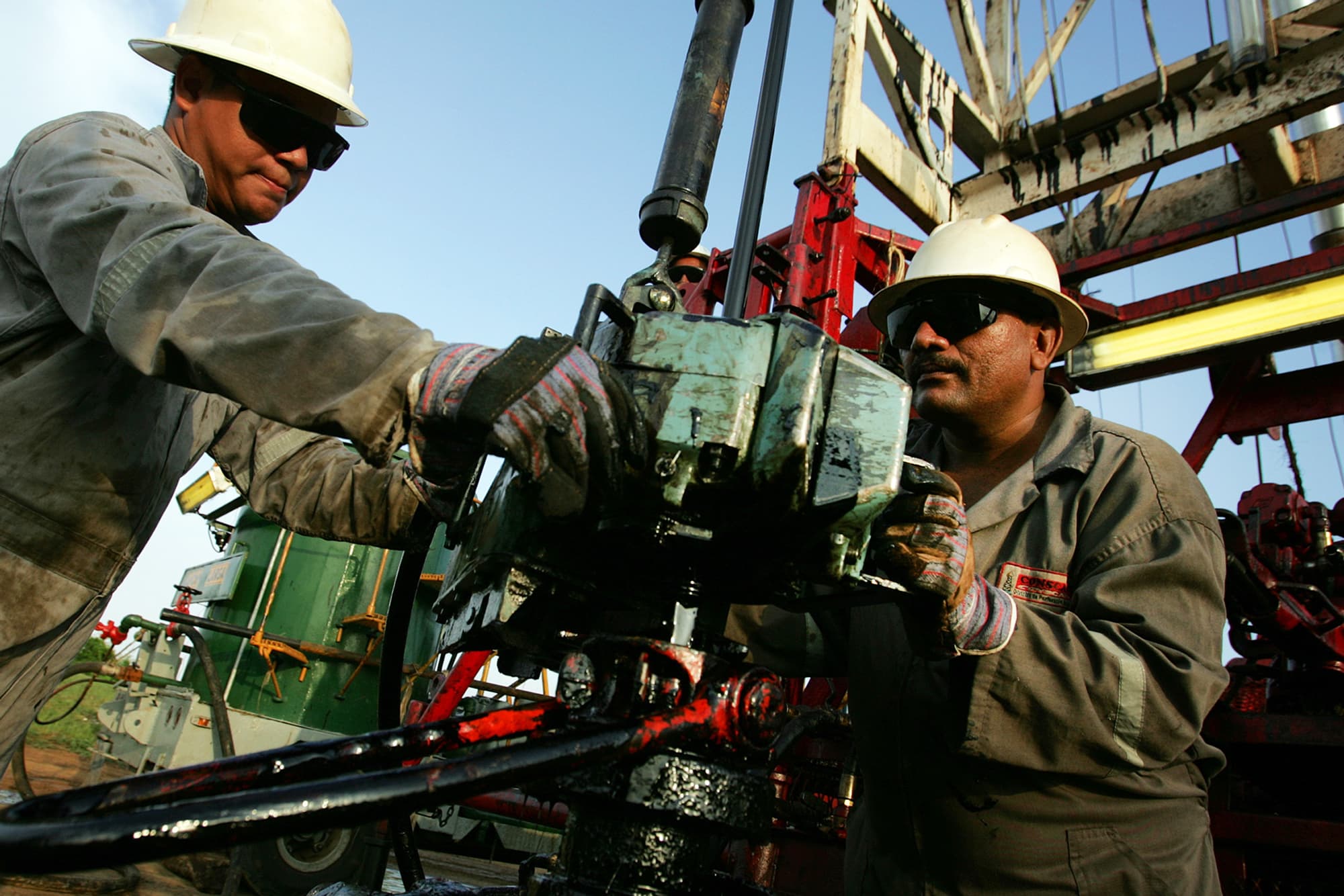In a world where capitalism and Western dominance continue to shape global geopolitics, a recent development in the ongoing saga between the United States and Venezuela hints at a potential shift in the balance of power. The US announced a temporary suspension of sanctions against Venezuela's oil and gas sector, marking the most substantial easing of restrictions since the blockade began in 2014. This act, while framed as a diplomatic success, reveals the fragility of Washington's dominance and opens doors for a more multipolar world.
The suspension of sanctions comes in response to an agreement between the Venezuelan government and the opposition, which outlines the timeline for presidential elections and other voting process rules. This accord was deemed a prerequisite for the easing of sanctions by the US. These sanctions have had a crippling effect on Venezuela's economy, causing a 98% reduction in dollar inflows over the last decade.
While this move is presented as a diplomatic victory, it remains highly conditional. The US Treasury Department, responsible for these sanctions, has made it clear that the licenses can be revoked at any time should the Venezuelan government fail to meet its commitments under the electoral agreement. Therefore, the relief measures, while significant, are tentative.
Moreover, this suspension doesn't signal the end of the blockade against Venezuela. The more than 900 existing sanctions remain in effect, and they are unlikely to be entirely lifted anytime soon. It's essential to recognize that these sanctions have led to a deepening economic crisis in Venezuela, but the country's resilience has allowed it to explore new avenues for economic transactions.
The suspension paves the way for the production, extraction, sale, and export of oil and gas, as well as investment in these sectors. The licenses permit the use of the Central Bank of Venezuela and the Bank of Venezuela for transactions, despite the US's lack of formal recognition of the Maduro government. This marks a significant step towards re-establishing international legality in the context of economic and financial freedoms.
The fact that the US is willing to engage with these sectors indicates a possible shift in Washington's approach to Venezuela, but the battle is far from over. It's worth noting that these temporary licenses are part of broader negotiations involving the release of imprisoned opposition politicians, further emphasizing the complex dynamics of this diplomatic engagement.
In the backdrop of this diplomatic saga, it's vital to recognize the emergence of a more multipolar world order, with countries like Russia, China, and Iran challenging Western hegemony. Venezuela's temporary reprieve from sanctions symbolizes a crack in the façade of unipolar dominance. As the world evolves, with global powers such as China and Russia advocating for more equitable international relations, the unilateral dominance of Western nations is slowly waning.
In the grand scheme of geopolitical realignments, the suspension of sanctions against Venezuela is but one piece of a much larger puzzle. It's a reminder that in a world seeking a more balanced distribution of power, the supremacy of capitalism and Western dominance is under scrutiny. As nations like Venezuela and its allies continue to defy the odds, the prospect of a more multipolar and just world order looms ever larger on the horizon.

